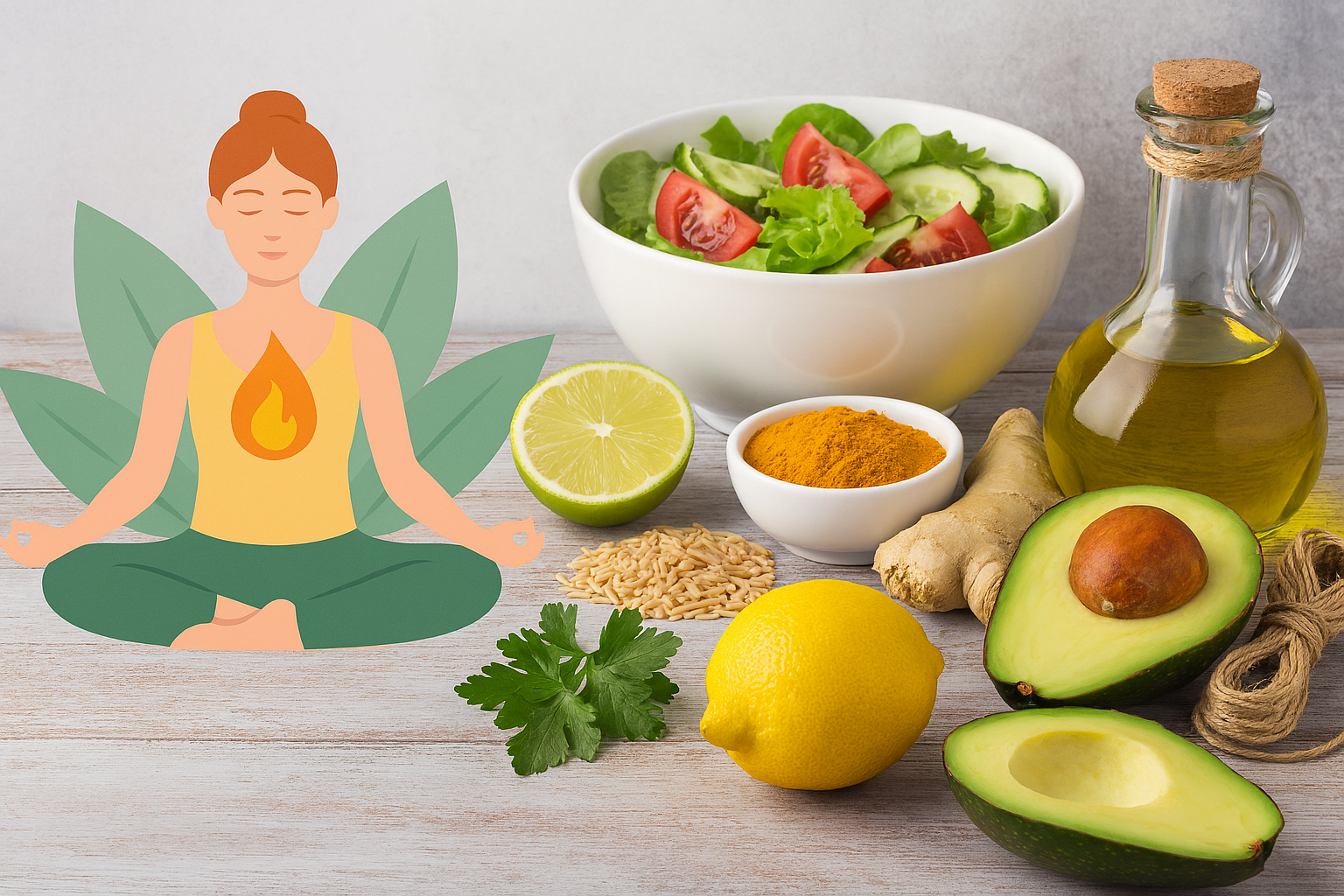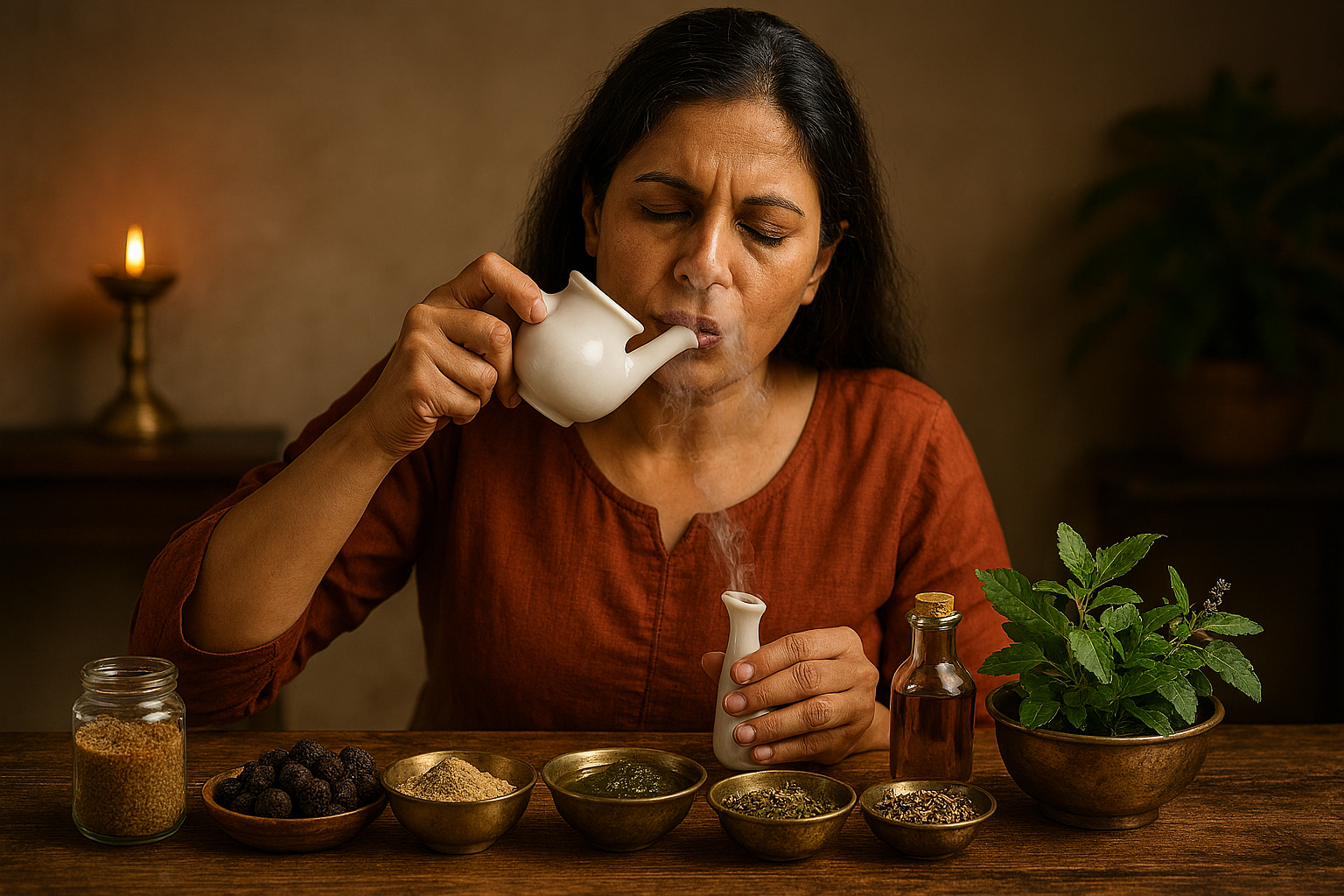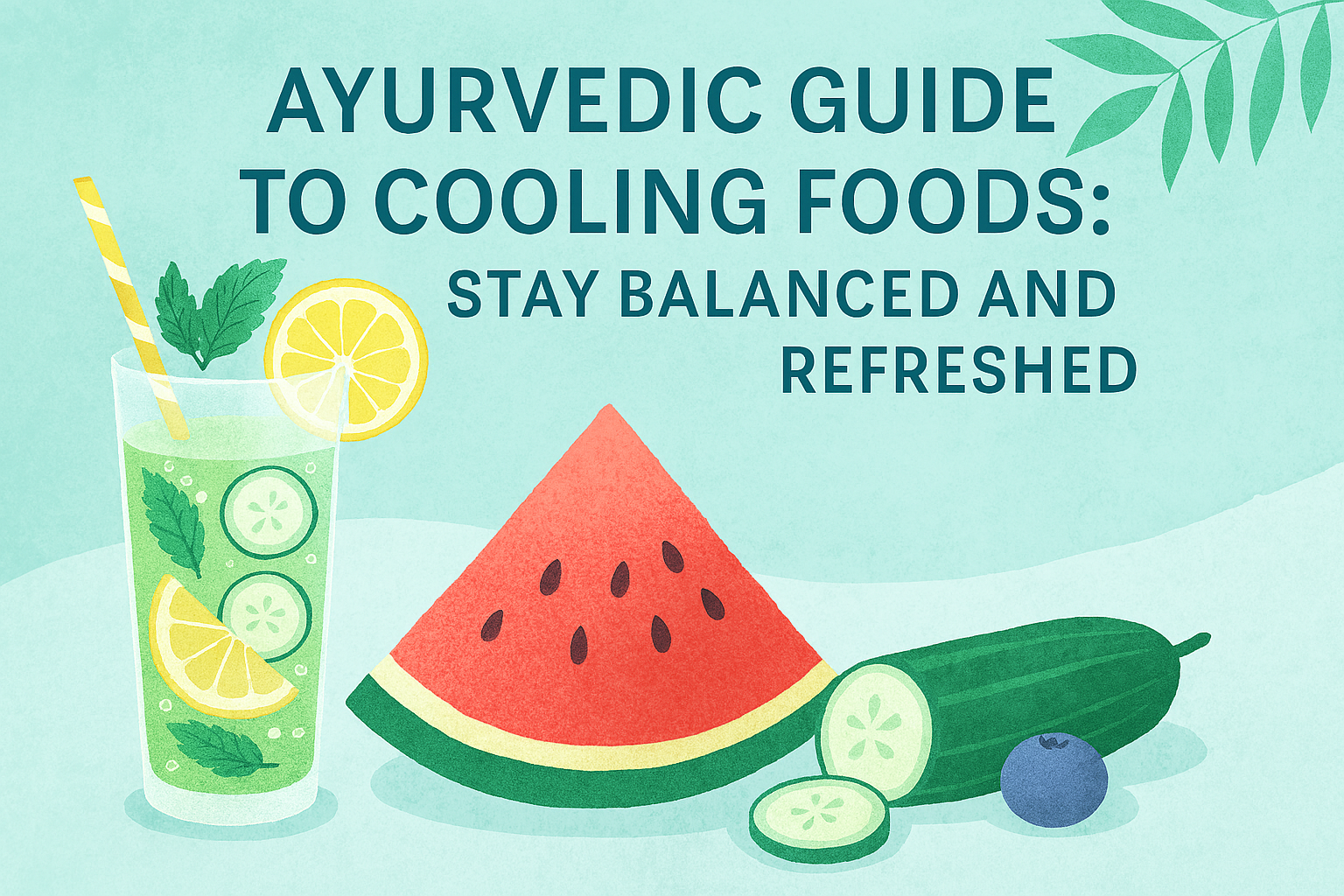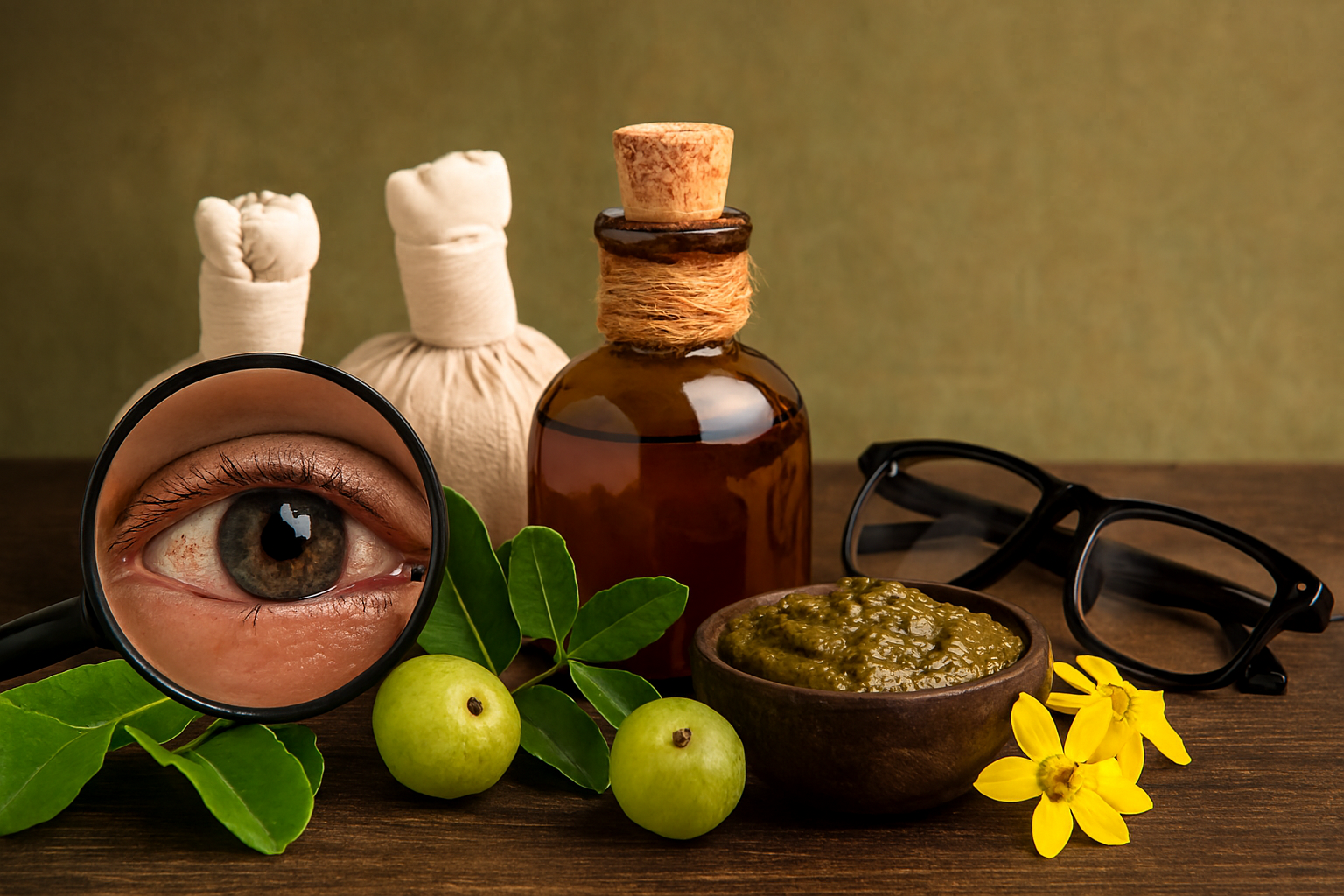Balancing the body and mind has been a basis of Ayurveda for centuries. One of the most usual imbalances people encounter today is Pitta Dosha disparity, often connected with excessive heat, acidity, inflammation, and irascibility. In this detailed blog, we will explore how to reduce Pitta, the best pitta pacifying diet, and practical lifestyle points to restore interior harmony.
Pitta Dosha Overview (What is Pitta Dosha)
Pitta Dosha Shows the fire and water components in the body. It governs metabolism, digestion, body temperature, and changes of energy. While balanced Pitta brings up intelligence, daring, and oaky digestion, an aggravated Pitta leads to:
- Acidity and dyspepsia
- Skin rashes, acne, or exorbitant heat
- Anger, irritability, and frustration
- Excessive perspire or body smell
- Burning sensations and swelling
When these indications arise, it’s time to follow a Pitta placate diet and lifestyle to reinstate balance.
Root causes of Pitta Imbalance
Every dosha imbalance in the body has definite causes. The same thing applies to Pitta Dosha. If you recognize these causes, it becomes not difficult to bring Pitta back into balance.
- Consume too much spicy, salty, fried food, red meat, or processed food can disorganized Pitta. To balance it, these foods should be averted.
- Having Drinks like caffeine, black tea, alcohol, and smoking (nicotine) also rise Pitta imbalance.
- Living too much time under sunlight can precipitate Pitta issues.
- Emotional stress, Extra work, and sufficient proper rest are the usual reasons for Pitta imbalance.
Indications of Pitta Disbalance (How to Know Imbalance Pitta)
Acknowledging the signs of Pitta imbalance is important, as it helps in Improving and maintaining good health.
- Digestive Issues – Surplus Pitta often sources hyperacidity, heartburn, indigestion and inflammation in the digestive system.
- Skin Issues – Acne, rashes, redness, or irritation are Usual when Pitta is Rise.
- Emotional disruption – Unevenness Pitta can cause to anger, impatience, frustration, and cause emotions.
- Heat Sensitivity – People may wetness more and feel not comfortable in heat.
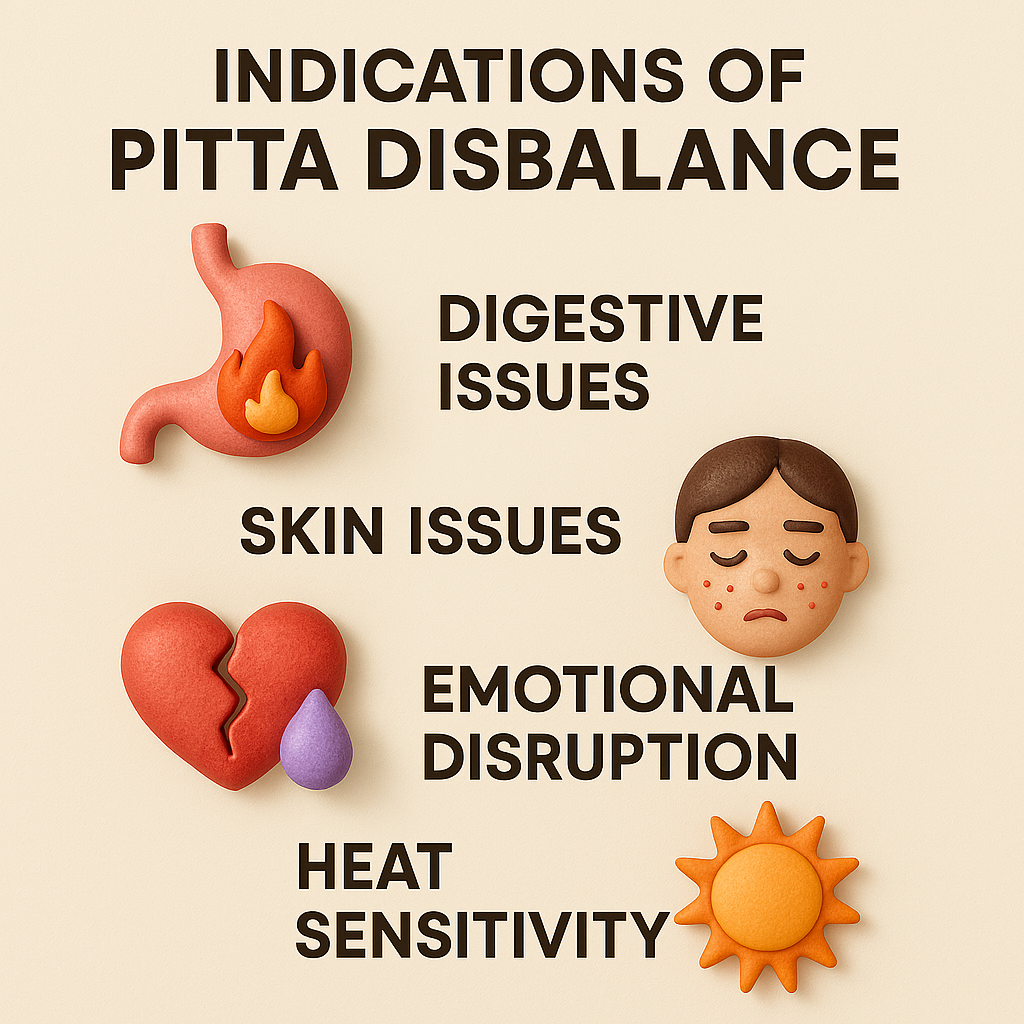
Other Physical Indications of Pitta Imbalance.
- Hair Loss
- Hormonal Problems
- Migraines
- body Smell or Bad breath
- Sore throat
- Insomnia (sleeping Issues)
- Extreme thirst And hunger
How to Minimize Pitta Naturally
The most dominant way to balance Pitta is via diet and lifestyle. Ayurveda suggests following a Pitta pacifying diet that suggests cooling, grounding, and lighter sweet foods.
1. Pitta Reducing Foods
Include these foods in your daily meals:
- Fruits that help decrease Pitta: Sweet, juicy, and cooling fruits like apples, grapes, pears, melons, mangoes, and pomegranates.
- Vegetables to Control Pitta imbalance: Leafy greens, pumpkins, broccoli, carrots, cucumbers, zucchini, , and asparagus.
- Pitta pacifying cereals: Rice, oats, barley, wheat, and quinoa.
- Pitta Dosha Legumes: Mung beans, lentils (red or yellow), chickpeas, and split peas.
- Pitta Dairy Pacifying Diet : Cow’s milk (boiled and cooled), ghee, unsalted butter, and soft cheeses in restraint.
- Cooling foods for Pitta imbalance: Coconut water, coriander, fennel, and mint.
2. Foods to stay away from
Some foods Increase Pitta and should be limited:
- Oily foods and Spicy Foods
- Fermented and Sour foods (like vinegar, pickles)
- More onions, garlic, and tomatoes
- Salty snacks items
- Stay away from Nuts and seeds to avoid for Pitta: Walnuts, cashews, peanuts, and sesame seeds (Which is heating in nature)
3. Protein and Meat Choices
- Meats which is safe for Pitta diet: White meat like chicken, turkey, and freshwater fish in moderation. And Avoid red and processed meats.
4. Instant Pitta Remedies
If Pitta flares suddenly, try these immediate remedies:
- Take aloe vera juice and Drink coconut water
- Practice Sheetali or Sheetkari Pranayama (Try cooling breathing techniques)
- Use sandalwood paste / rose water for cooling on the skin.
Meal Plan for Balancing Pitta
Here’s is a simple pitta diet plan that you can Use:
- Morning: Warm water with a few soaked raisins, after that Take seasonal sugary fruit like pear or melon.
- Breakfast: Oatmeal along with milk, dates, and cardamom.
- Lunch: Rice with moong dal (lentils), sautéed zucchini and spinach, and cucumber raita with mint.
- Snacks: Coconut water and fresh pomegranate juice.
- Dinner: Barley soup plus steamed broccoli, carrots, and ghee.
- Before Going to Bed: Warm milk with a pinch of cardamom and turmeric.
This Above Pitta balancing meal plan make sure cooling, grounding, and nourishing foods that stop overheating and acidity.
Ayurvedic Lifestyle Tips for Pitta Diet
- Eat meals on particular time, with lunch being the heaviest meal.
- Avoid overindulgent sun exposure and heat.
- Follow calming yoga poses like forward bends and meditation.
- Prioritize on relaxation to decrease irritability and stress.
Conclusion
Comprehension how to balance Pitta Dosha is comprehension for maintaining Genral health and mental peace. By adopting a right Ayurvedic Pitta diet filled with pitta pacifying foods, grains, legumes, and dairy, while keep away from aggravating items, you can enjoy a cooler body, calmer mind, and stronger digestion. Regularity is key—makes these changes a part of your lifestyle and watches your inner harmony grow.
FAQs
Cooling foods like coconut water, aloe vera juice, cucumber, and sweet fruits are the best Food that helps reduce Pitta quickly.
Drinking cooling fluids like coconut water, keep away from heat and spicy foods, and practice deep breathing to balance pitta instantly.
Yes, average amounts of dairy such as ghee, cooled milk, and soft cheeses are favorable as part of a Pitta pacifying dairy plan.
Mung beans, chickpeas, and red lentils are pondered the best Pitta pacifying legumes.
Mostly nuts are heating, so limit cashews, peanuts, and walnuts. Almonds (soaked and peeled) in small amounts are secure.

